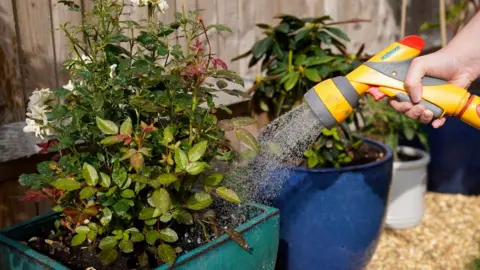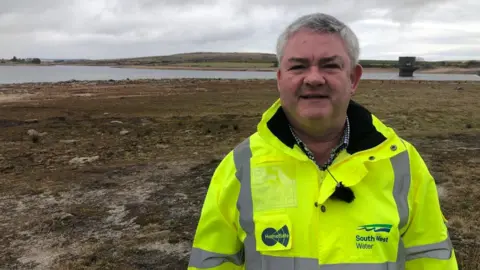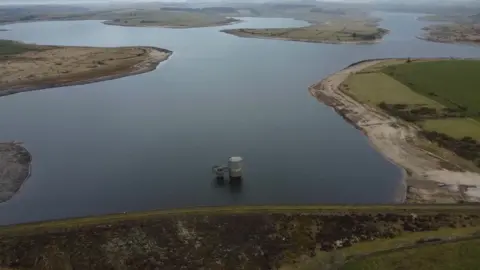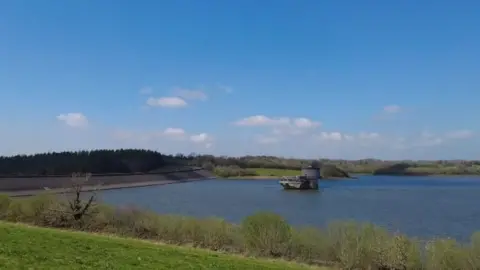South West Water hosepipe ban: Your questions answered
 PA Media
PA MediaA hosepipe ban will come into force across most of Devon from 25 April in a bid to help replenish water supplies ahead of the summer. An initial ban, which is still in place after being introduced in August 2022, covered Cornwall and a small part of north Devon.
Here we put your questions to South West Water (SWW) on what the company is doing to address water levels.
How much water will be saved by a hosepipe ban?
David Harris, SWW drought and resilience director, said demand for water typically increased by 20% in summer and a hosepipe ban was estimated to shave 5% off that increase.
"It will save us a quarter of that increase coming into summer," he said.
"We understand that our customers don't like these measures... [but] it's actually the responsible thing for us to do at this time ahead of that peak summer demand."
Mr Harris said tougher restrictions would have needed to be introduced without a hosepipe ban.
"That is what we're avoiding by doing by what we're doing today - it's the responsible thing to do at the right time," he said.

Why is SWW bringing in a hosepipe ban instead of fixing leaks?
Mr Harris said the company was fixing a "record" 2,500 leaks on average every month.
"Two years ago we dedicated a lot of resources and a lot of people to fixing leaks and we're out there doing that," he said.
"That's a service we're providing free to customers."
Water regulator Ofwat said progress had been made on leakages in England and Wales but "more needs to be done" and it expects "significant improvements" from water companies.
SWW reported 90.6 megalitres of water was lost to leaks per day in 2021-2022, according to the latest leakage data.
The figure is an improvement on the 136 megalitres reported per day in 2020-2021.

Why isn't the rainfall being collected by the reservoirs?
Mr Harris said record temperatures and record demand for water in 2022 were still taking a toll on supplies.
He said: "We haven't had the recovery over winter that we otherwise wanted to have.
"We had a bad month in February in terms of in-flows and April has been below average."
Roadford Reservoir was at about 70% capacity, while Colliford Reservoir was at about 60%, according to SWW's most recent figures.
Why hasn't SWW built any new reservoirs?
The drought and resilience director said the utility had either built or acquired three new reservoirs in the past 15 years to add to the region's total supply.
"They are not as big as Roadford or Colliford, which are our two strategic reservoirs. However we've got a fully integrated network so every bit counts," he said.
Could SWW have better planned for heatwaves given climate trends?
SWW said it decided to extend the hosepipe ban ahead of any heatwaves in 2023.
Mr Harris said it was wise to replenish water supplies now before the peak period in summer.
"We don't know whether it is going to be the record-breaking temperatures we got last year or not, so we're bringing in this hosepipe ban in case we get those same circumstances," he said.

Will SWW reward people saving water by taking money off bills?
Last year, the company promised customers in Cornwall it would take £30 off their bills following an increase in water levels at Colliford Reservoir.
But Mr Harris did not commit to another round of the incentive.
"We're asking people to be reasonable in their water use," he said.
"That was well understood in Colliford last year and I'm very confident our customers here in Roadford [which services Devon] will understand that."
Is SWW confident no further restrictions will need to be introduced?
Mr Harris said the extended hosepipe ban was designed to ensure no further restrictions have to be introduced this year.
"If we had a rerun of 2022, we will not have any further restrictions on our customers," he said.

Follow BBC News South West on Twitter, Facebook and Instagram. Send your story ideas to [email protected].
